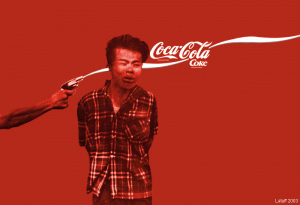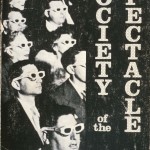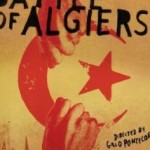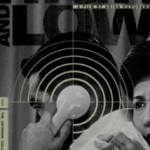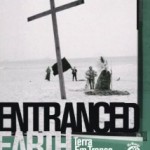Scopic Regimes of Decolonization?
Over the course of the semester we have explored the ways in which new technologies, political upheavals and social transformations have shaped visual cultures around the world. As postcolonial movements expanded the horizons of the possible artists and activists developed new visual vocabularies, or what Martin Jay may call a scopic regime of decolonization. This final group project is designed to capture some of these energies, both creative and political, and to think through aspects of this visual grammar.
We are listing below five films we have not explored during the course of the semester as a point of entry into this project. We don’t expect you to conduct a film analysis. Rather, we want the film to become one of the sites through which you explore visual cultures of the 1960s. The final project will be comprised of two parts, each of you will focus on one aspect of the film and then collaboratively you will forward an argument about the film’s scopic regime of decolonization. So, imagine this project as having at least two steps: the first step is individual work and the second step is putting the different pieces together to formulate a larger argument.
Ideally, each one of you in the group will focus on one singular aspect of the movie – the depiction of space and place (in some cases the city); the representation of politics; the depiction of landscape or the nation-state; the construction of the narrative; the aesthetic devices used to represent particular characters; the artistic tradition of the director; etc. You will collaborate on deciding which aspect of the movie each of you will analyze.
French philosopher Jacque Ranciere argues that, political activity is what makes the invisible visible, it shifts a body from the place assigned to it and it makes noise understood as discourse. We want you to think of this insight as you watch your film and analyze it. Think about what is being rendered visible, what is silenced, what is heard, what is moved, and through these questions figure out how the film configures political activity.
We don’t expect you to be familiar with cinematic terms or cinematic analysis. Instead we want you to watch one of the movies listed below, either individually or collectively. This final project is designed to be analytical rather than descriptive. So, don’t spend too much of your energies describing the movie. Instead, try to figure out a way that you can meld together the different aspects each of you have analyzed to make a coherent argument about the scopic regime of decolonization developed in your film.
As always we expect you to ground your analysis within our course concerns so you will each of you list at least three course readings in your individual sections. You will include a bibliography and citations.
Unlike the past formal papers you could decide on a creative response to this prompt: your project could be a series of blog posts; your project could be a mash-up video; you may decide to write a script. If you decide on a creative project please consult us so we can help you identify the parameters for the project.
If you decide on a written essay, your cumulative analysis should be between 10-12 pages. You should have a cumulative bibliography.
Whatever option you decide to adopt, please make sure that you label the authors of individual sections. We will grade you on your individual contributions as well as the final group work.
Film choices (we have offered links to imdb and offered a brief summary here):
Ritwik Ghatak, Meghe Dhaka Tara (1960) – India/Bangladesh
Cloud-Capped Star is part of a trilogy exploring the trauma of India’s partition. The narrative centers on a refugee camp near Calcutta and centers on a Hindu family’s sufferings. This is melodrama par excellence.
Akiro Kurosawa, Tengoku to Jigoku (1963) — Japan
High and Low is a police procedural by the acclaimed director. It allows you to recognize how differently the Japanese imagine the whodunit.
Gillo Pontecorvo, La Battaglia di Algeri (1966) — Italy
The Battle of Algiers rehearses the Algerian struggles for independence, focusing on the guerilla warfare of the 1950s. The film was banned originally in France.
Agnes Varda, Cleo de 5 a 7 (1962) — French
This film stages the existentialist questions that were central to many French philosophers of this era.
Glauber Rocha, Terra em Transe (1967) – Brazil
Entranced Earth is about political corruption in Brazil and features a journalist as a solution to the existing problems.
